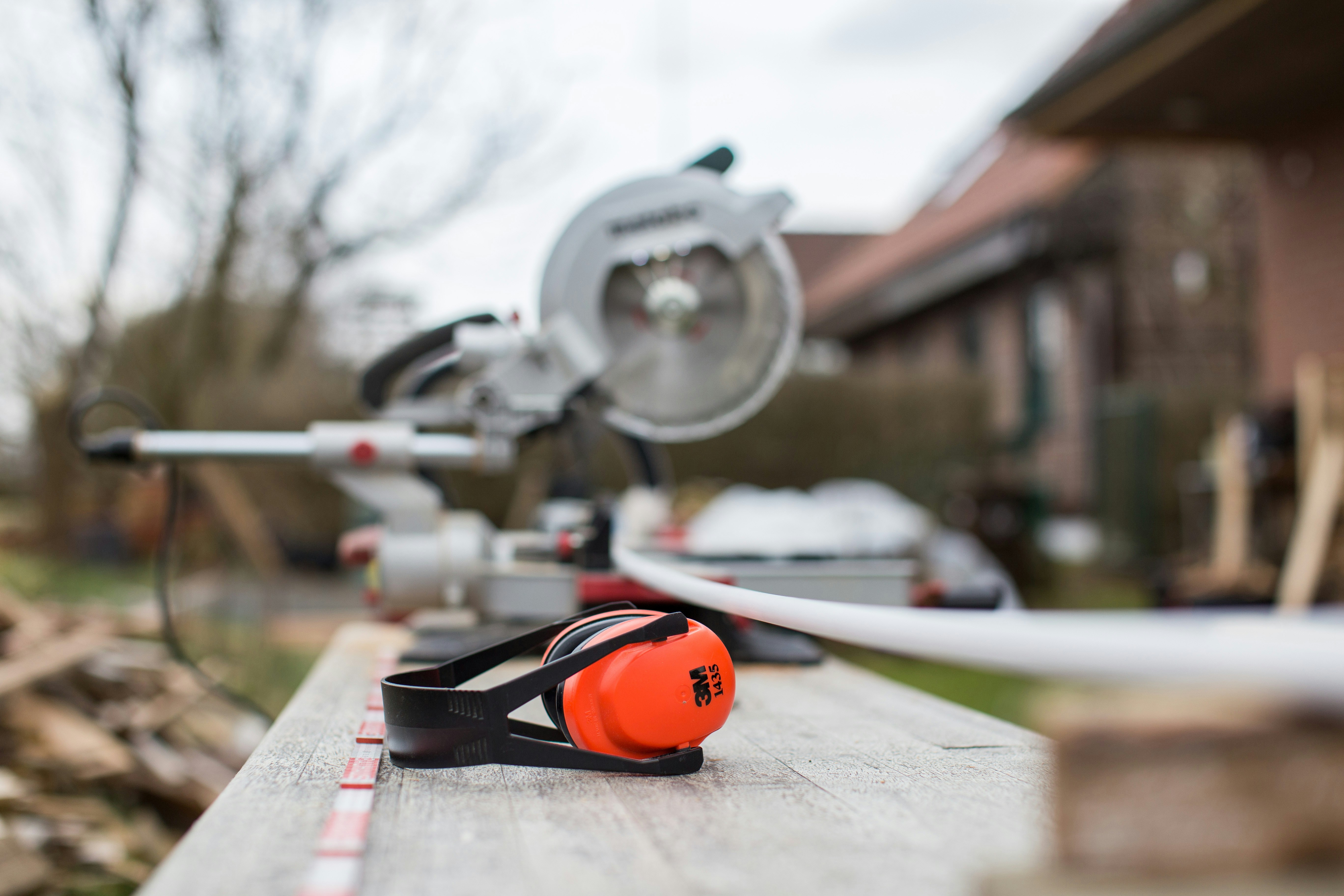In this article, you will learn about the possible reasons why your exhaust system is making a loud noise. You may be experiencing this issue and wondering what could be causing the problem. We will discuss a few common causes and provide some potential solutions to help you address the issue. By the end of this article, you will have a better understanding of why your exhaust system is making a loud noise and what steps you can take to fix it.
One possible reason for the loud noise coming from your exhaust system could be a damaged or rusted muffler. Over time, the muffler can deteriorate due to exposure to road salt, moisture, and other elements. Another possible cause is a loose or damaged exhaust pipe, which can result in a vibrating or rattling noise. Additionally, a faulty catalytic converter can also cause loud noises, as it can become clogged or damaged. It is important to identify the specific cause of the noise in order to find the appropriate solution and ensure the proper functioning of your exhaust system.
Reasons for Loud Noise in Exhaust System
Damaged Muffler
A damaged muffler is one of the most common reasons for a loud noise in your exhaust system. The muffler is responsible for reducing the noise produced by the engine. If it becomes damaged or develops holes, it will not be able to effectively muffle the sound, resulting in a louder exhaust noise.
Loose or Broken Exhaust Pipes
Another possible cause of a loud exhaust noise is loose or broken exhaust pipes. Over time, the constant exposure to heat and road debris can cause the pipes to loosen or even break. This can lead to a significant increase in exhaust noise as the gases escape through the gaps in the pipes.
Exhaust Leak
An exhaust leak can also be responsible for the loud noise coming from your exhaust system. If there is a leak anywhere in the exhaust system, such as in the manifold, pipes, or muffler, it can cause the gases to escape and create a loud hissing or puffing sound. Not only does this contribute to the noise, but it can also result in decreased engine power and potential engine damage if left unattended.
Catalytic Converter Issues
Issues with the catalytic converter can also lead to a loud exhaust noise. The catalytic converter is responsible for reducing emissions by converting harmful gases into less harmful ones. If it becomes damaged or clogged, it can create a rattling noise or even trigger the check engine light. In addition to the noise, a dysfunctional catalytic converter can also lead to reduced fuel economy.
Impact of a Damaged Muffler
A damaged muffler not only contributes to a loud exhaust noise but also has various other impacts on your vehicle:
Reduced Engine Performance
When the muffler is damaged, it can restrict the flow of exhaust gases, causing backpressure and reducing engine performance. This can result in decreased acceleration and overall power of your vehicle.
Increased Emissions
With a damaged muffler, the exhaust gases are not effectively filtered and muffled, leading to increased emissions. This can result in your vehicle failing emissions tests and contributing to air pollution.
Potential Fire Hazard
If the damage to the muffler is severe and extends to the internal structure, it can cause hot exhaust gases to come into contact with flammable materials under your vehicle. This can potentially lead to a fire hazard, posing a threat to your safety and the safety of others on the road.
Effects of Loose or Broken Exhaust Pipes
In addition to creating a loud exhaust noise, loose or broken exhaust pipes can have the following effects:
Loud Exhaust Noise
When the exhaust pipes are loose or broken, the gases can escape through the gaps, creating a noticeable increase in exhaust noise. This can be particularly disruptive and annoying, both for you and those around you.
Risk of Carbon Monoxide Poisoning
A more serious consequence of a damaged exhaust system is the risk of carbon monoxide poisoning. Carbon monoxide is a colorless and odorless gas that can leak from the exhaust pipes and seep into the cabin of your vehicle. Inhalation of carbon monoxide can lead to severe health issues or even death, making it essential to address any exhaust system issues promptly.
Reduced Fuel Efficiency
Leaky or broken exhaust pipes can also result in reduced fuel efficiency. When the exhaust gases escape before passing through the entire exhaust system, your engine has to work harder to maintain its performance. This can lead to increased fuel consumption, resulting in lower mileage and increased expenses at the gas pump.
Consequences of an Exhaust Leak
An exhaust leak, regardless of the location, can have various consequences:
Loud Hissing or Puffing Sound
one of the primary indicators of an exhaust leak is a loud hissing or puffing sound coming from your exhaust system. This noise is caused by the gases escaping through the leak, and its intensity may vary depending on the size and location of the leak.
Decreased Engine Power
An exhaust leak can disrupt the backpressure balance in your engine, ultimately leading to decreased engine power. This can manifest as sluggish acceleration, reduced overall performance, and a decreased driving experience.
Potential Engine Damage
If left unaddressed, an exhaust leak can cause damage to the engine. The escaping exhaust gases can directly come into contact with engine components, potentially causing overheating or even cracking. Engine repairs can be costly, so it is important to address any exhaust leaks promptly to avoid further damage.
Problems with the Catalytic Converter
The catalytic converter plays a crucial role in your vehicle’s emissions control system, and any issues with it can result in a loud exhaust noise. Here are some common problems associated with the catalytic converter:
Unusual Rattling Noise
When the internal components of the catalytic converter become damaged or dislodged, it can create a rattling noise. This noise is typically more noticeable during acceleration or when the engine is under load.
Check Engine Light Activation
A malfunctioning catalytic converter can trigger the check engine light on your vehicle’s dashboard. This serves as a warning that there is an issue with the emissions control system and requires immediate attention.
Reduced Fuel Economy
If the catalytic converter becomes clogged or fails to convert the harmful gases effectively, it can result in reduced fuel economy. A malfunctioning catalytic converter may contribute to increased fuel consumption, leading to higher expenses and a decreased driving range.
Common DIY Solutions
While some exhaust system issues may require professional assistance, there are a few things you can do yourself to address certain problems:
Replacing the Muffler
If the damage to your muffler is significant, it may need to be replaced. Many aftermarket mufflers are available that offer improved performance and reduced noise compared to the original equipment manufacturer (OEM) mufflers.
Repairing or Replacing Exhaust Pipes
For loose or broken exhaust pipes, you can try repairing them using exhaust sealant or clamps. If the damage is extensive, it may be necessary to replace the pipes entirely. It is crucial to ensure a proper fit and secure connection to avoid future leaks or noise issues.
Sealing Exhaust Leaks
Small exhaust leaks can sometimes be resolved by using exhaust sealant or tape. These products are designed to fill small gaps and create a temporary seal. However, it is important to note that these solutions may not be a permanent fix and professional repairs may be needed for larger or more severe leaks.
Replacing the Catalytic Converter
In the case of catalytic converter issues, replacement is often the best solution. It is essential to choose a catalytic converter that meets the specifications of your vehicle and complies with local emissions regulations.
Seeking Professional Help
While some DIY solutions can be effective, there are instances where seeking professional help is necessary:
Inspection by a Mechanic
If you are unsure about the cause of the loud exhaust noise or if you suspect more severe issues, it is recommended to have your vehicle inspected by a qualified mechanic. They have the knowledge and experience to accurately diagnose and address any problems with your exhaust system.
Professional Exhaust System Repair
For complex or major exhaust system issues, it is best to leave the repairs to professionals. They have the necessary tools and expertise to repair or replace exhaust components and ensure that everything is properly installed and functioning.
Catalytic Converter Testing and Replacement
Determining the exact issue with your catalytic converter requires specialized equipment and expertise. A professional can perform diagnostic tests to determine if the catalytic converter needs to be replaced and ensure that it is functioning correctly.
Conclusion
Identifying the cause of a loud exhaust noise and addressing it promptly is crucial to maintain vehicle performance, safety, and overall functionality. Whether it’s a damaged muffler, loose exhaust pipes, an exhaust leak, or catalytic converter issues, understanding the potential impacts and seeking the appropriate solutions will help restore the quiet and optimal operation of your vehicle’s exhaust system. Remember, a properly functioning exhaust system not only reduces noise but also contributes to better engine performance, improved fuel efficiency, and reduced emissions.



